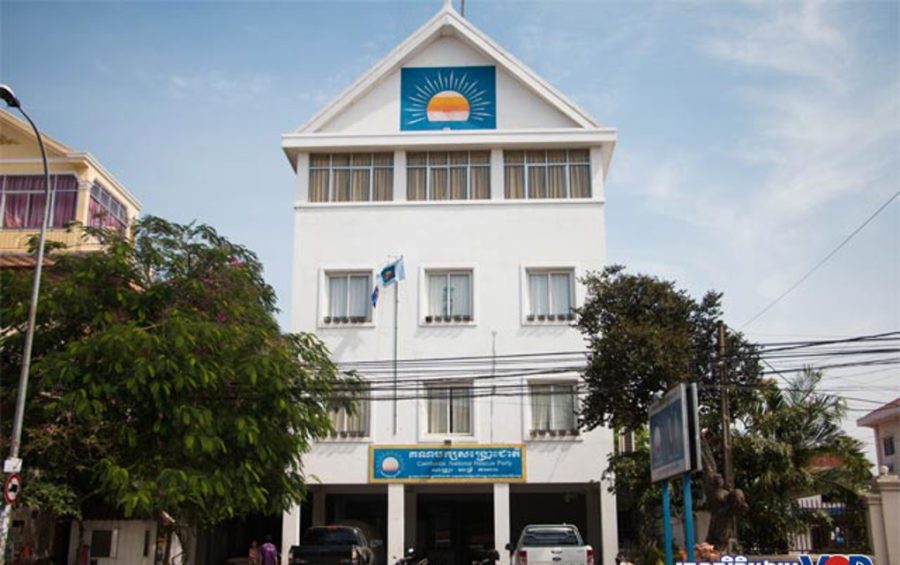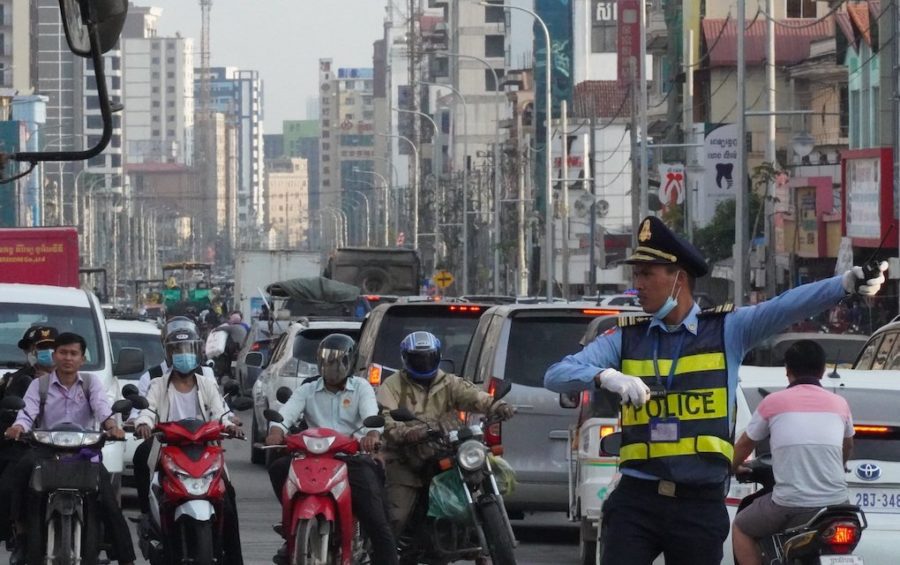At first, An Chanthou told the police officers at her door that her husband had gone to Phnom Penh. Then they brought out two guns.
They wanted to ask him a few questions, and said they had an arrest warrant but wouldn’t show her.
“One short gun and one long gun. And they ordered me to get my husband somehow, or they would arrest me and my family and destroy our house,” Chanthou said. “I went to ask my husband to come out.”
Her husband, Lak Keang, was a CNRP commune chief in Preah Sihanouk province’s Bit Traing, but the country’s opposition party was outlawed in 2017.
“He quit politics,” Chanthou said. “He stayed home and grew coconuts and other plants. … I don’t know what to say. I am speechless and this is too far. I don’t know anything because he stayed at home.”
The police arrived around 4 p.m. Wednesday, she said. First it was the Bit Traing commune police chief and a couple of officers. Then they waited in their car amid rain, and four more cars showed up.
“I didn’t know them. They wore civilian clothes,” Chanthou said. “They said they had an arrest warrant and I asked where the warrant was. … They didn’t show me the warrant.”
She said the couple had two children, aged 5 and 1. Her husband was taken to Phnom Penh, she said.
“When he came out, they did not ask for anything. They just handcuffed him,” she said. “I asked them why they came to arrest him, what was the problem to arrest him, and they did not say anything.”
According to a Phnom Penh Municipal Court warrant dated Wednesday, Keang was to be questioned by a police working group to investigate land disputes and illegal encroachment of state land.
National Police spokesman Chhay Kim Khoeun said Keang was accused of forging public documents.
Kim Khoeun added that a second opposition supporter, Tum Bunthan, was also arrested on Wednesday. Bunthan was accused of incitement to discriminate and incitement to disturb social security.
“Both cases followed the court’s warrants, and when there is a court warrant [we] arrest them, send them to prison,” Kim Khoeun said.
A relative of Bunthan, who asked not to be named out of fear for her safety, said he was “ambushed” in Phnom Penh’s Prey Sar commune while driving his car with his 2-year-old son. Five or six motorbikes escorted the car back home so he could drop off the child, she said.
“My children and his son were crying loudly when they saw he was being arrested. … I did not ask them where they were taking him because all the children were crying very hard. If they were not with me, I would have followed them to see where they sent him.”
“He just told me, ‘I will keep my son with you. They are arresting me.’”
Bunthan was formerly a member of the CNRP working group in Phnom Penh’s Prampi Makara district.
Am Sam Ath, spokesperson for rights group Licadho, noted how the latest arrests had come after a recent exchange of words between political leaders.
Prime Minister Hun Sen publicly railed against exiled CNRP co-founder Sam Rainsy after gatecrashing an opposition Zoom call. While the CNRP suggested Hun Sen was looking to negotiate — with Rainsy suggesting that the opposition would offer immunity to Hun Sen if they unseated him — Hun Sen scoffed at the suggestion.
Former CNRP officials have faced waves of arrests over the past four years, including many who were arrested toward the end of last year, leading to mass trials in the Phnom Penh court.
Sam Ath said politicians should turn to dialogue and be mindful of how actions in the past have been criticized as human rights abuses.
“We should look at the criticism related to democracy and respect for human rights in the past, what are the shortcomings of our country,” he said. “We’ve seen past experiences of having sanctions imposed on some individuals in Cambodia who are said to have committed human rights abuses.”
Additional reporting by Khan Leakhena












